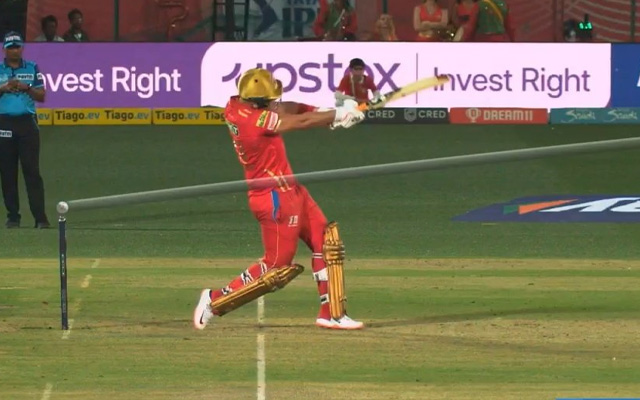IPL 2024: New BCCI technology aims to end waist-high no-ball controversies
In a bid to end the controversies surrounding waist-high no balls, the BCCI has adopted a new rule starting from IPL 2024.
2 Min Read


The Board of Control for Cricket in India (BCCI) has come up with a new technology during the ongoing Indian Premier League (IPL) 2024 to reduce the error element in height-related no-ball calls. Over the years, teams have suffered due to errors in decision-making from the umpires. While they are humans and are bound to make unintentional mistakes once in a while, it becomes frustrating for teams when the rub of the green doesn't go their way in crunch situations.
One of the most debatable calls is the waist-high no-ball. The leg umpire checks the height of a full toss and deems it as a no-ball if the ball is above the waist of a batter during his normal stance. The third umpire is also called upon to decide in case of any doubts. Over the years, some decisions from the umpires regarding waist-high no-balls have caused quite an uproar.
"There are people in the BCCI's team who are measuring the height of all the players in the IPL till their waist, with a measuring tape. This data will then be fed into the system used by the hawk-eye operators, who sit with the third umpire (from this season) to judge reviews of waist-high full tosses. This data will help in judging the waist-high full toss to a particular batsman better," a source was quoted as saying by the Times of India.
Also read: IPL 2024: All you need to know about Smart Replay System, two bouncers and other new rules
This year, the BCCI has introduced a couple of new rules to make the IPL 2024 even more intriguing. The introduction of the 'Smart Replay System' has made decision-making faster, more efficient, and more accurate. It is a new camera-based review system where eight high-speed Hawk-Eye cameras are positioned around the stadium. In addition to this, two Hawk-Eye cameras will be stationed alongside the TV umpire to offer real-time images and data for swift analysis. The TV broadcast director's role of being an intermediary between the TV umpire and the Hawk-Eye operators has become obsolete.
Also, the implementation of the second bouncer rule has been wholeheartedly welcomed by fans as well as experts as it enables a much better balance between bat and ball.
Download Our App